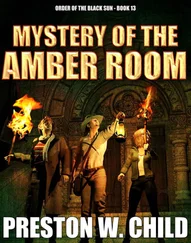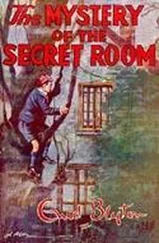The Fulton County Daily Report rated all the local superior court judges annually. For the past three years she'd been ranked near the top, disposing of cases faster than most of her fellow judges, with a reversal rate in the appellate courts of only 2 percent. Not bad being right 98 percent of the time.
She settled behind the bench and watched the afternoon parade begin. Lawyers hustled in and out, some ferrying clients in need of a final divorce or a judge's signature, others looking for a resolution to pending motions in civil cases awaiting trial. About forty different matters in all. By the time she glanced again at the clock across the room, it was 4:15 and the docket had whittled down to two items. One was an adoption, a task she really enjoyed. The seven-year-old reminded her of Brent, her own seven-year-old. The last matter was a simple name change, the petitioner unrepresented by counsel. She'd specifically scheduled the case at the end, hoping the courtroom would be empty.
The clerk handed her the file.
She stared down at the old man dressed in a beige tweed jacket and tan trousers who stood before the counsel table.
"Your full name?" she asked.
"Karl Bates." His tired voice carried an East European accent.
"How long have you lived in Fulton County?"
"Thirty-nine years."
"You were not born in this country?"
"No. I come from Belarus."
"And you are an American citizen?"
He nodded. "I'm an old man. Eighty-one. Almost half my life spent here."
The question and answer was not relevant to the petition, but neither the clerk nor the court reporter said anything. Their faces seemed to understand the moment.
"My parents, brothers, sisters--all slaughtered by Nazis. Many died in Belarus. We were White Russians. Very proud. After the war, not many of us were left when the Soviets annexed our land. Stalin was worse than Hitler. A madman. Butcher. Nothing remained there when he was through, so I leave. This country is the land of promise, right?"
"Were you a Russian citizen?"
"I believe correct designation was Soviet citizen." He shook his head. "But I never consider myself Soviet."
"Did you serve in the war?"
"Only of necessity. The Great Patriotic War, Stalin called it. I was lieutenant. Captured and sent to Mauthausen. Sixteen months in a concentration camp."
"What was your occupation here after immigrating?"
"Jeweler."
"You have petitioned this court for a change of name. Why do you wish to be known as Karol Borya?"
"It is my birth name. My father named me Karol. It means 'strong-willed.' I was youngest of six children and almost die at birth. When I immigrate to this country, I thought, must protect identity. I work for government commissions while in Soviet Union. I hated Communists. They ruin my homeland, and I speak out. Stalin sent many countrymen to Siberian camps. I thought harm would come to my family. Very few could leave then. But before my death, I want my heritage returned."
"Are you ill?"
"No. But I wonder how long this tired body will hold out."
She looked at the old man standing before her, his frame shrunken with age but still distinguished. The eyes were inscrutable and deep-set, hair stark white, voice gravelly and enigmatic. "You look marvelous for a man your age."
He smiled.
"Do you seek this change to defraud, evade prosecution, or hide from a creditor?"
"Never."
"Then I grant your petition. You shall be Karol Borya once again."
She signed the order attached to the petition and handed the file to the clerk. Stepping from the bench, she approached the old man. Tears slipped down his stubbled cheeks. Her eyes had reddened, as well. She hugged him and softly said, "I love you, Daddy."
THREE
4:50 p.m.
Paul Cutler stood from the oak armchair and addressed the court, his lawyerly patience wearing thin. "Your Honor, the estate does not contest movant's services. Instead, we merely challenge the amount he's attempting to charge. Twelve thousand three hundred dollars is a lot of money to paint a house."
"It was a big house," the creditor's lawyer said.
"I would hope," the probate judge added.
Paul said, "The house is two thousand square feet. Not a thing unusual about it. The paint job was routine. Movant is not entitled to the amount charged."
"Judge, the decedent contracted with my client for a complete house painting, which my client did."
"What the movant did, Judge, was take advantage of a seventy-three-year-old man. He did not render twelve thousand three hundred dollars' worth of services."
"The decedent promised my client a bonus if he finished within a week, and he did."
He couldn't believe the other lawyer was pressing the point with a straight face. "That's convenient, considering the only other person to contradict that promise is dead. The bottom line is that our firm is the named executor on the estate, and we cannot in good conscience pay this bill."
"You want a trial on it?" the crinkly judge asked the other side.
The creditor's lawyer bent down and whispered with the housepainter, a younger man noticeably uncomfortable in a tan polyester suit and tie. "No, sir. Perhaps a compromise. Seven thousand five hundred."
Paul never flinched. "One thousand two hundred and fifty. Not a dime more. We employed another painter to view the work. From what I've been told, we have a good suit for shoddy workmanship. The paint also appears to have been watered down. As far as I'm concerned, we'll let the jury decide." He looked at the other lawyer. "I get two hundred and twenty dollars an hour while we fight. So take your time, counselor."
The other lawyer never even consulted his client. "We don't have the resources to litigate this matter, so we have no choice but to accept the estate's offer."
"I bet. Bloody damn extortionist," Paul muttered, just loud enough for the other lawyer to hear, as he gathered his file.
"Draw an order, Mr. Cutler," the judge said.
Paul quickly left the hearing room and marched down the corridors of the Fulton County probate division. It was three floors down from the melange of Superior Court and a world apart. No sensational murders, high-profile litigation, or contested divorces. Wills, trusts, and guardianships formed the extent of its limited jurisdiction--mundane, boring, with evidence usually amounting to diluted memories and tales of alliances both real and imagined. A recent state statute Paul helped draft allowed jury trials in certain instances, and occasionally a litigant would demand one. But, by and large, business was tended to by a stable of elder judges, themselves once advocates who roamed the same halls in search of letters testamentary.
Ever since the University of Georgia sent him out into the world with a juris doctorate, probate work had been Paul's specialty. He'd not gone right to law school from college, summarily rejected by the twenty-two schools he'd applied to. His father was devastated. For three years he labored at the Georgia Citizens Bank in the probate and trust department as a glorified clerk, the experience enough motivation for him to retake the law school admission exam and reapply. Three schools ultimately accepted him, and a third-year clerkship resulted in a job at Pridgen & Woodworth after graduation. Now, thirteen years later, he was a sharing-partner in the firm, senior enough in the probate and trust department to be next in line for full partnership and the department's managerial reins.
He turned a corner and zeroed in on double doors at the far end.
Today had been hectic. The painter's motion had been scheduled for over a week, but right after lunch his office received a call from another creditor's lawyer to hear a hastily arranged motion. Originally it was set for 4:30, but the lawyer on the other side failed to show. So he'd shot over to an adjacent hearing room and taken care of the house painter's attempted thievery. He yanked open the wooden doors and stalked down the center aisle of the deserted courtroom. "Heard from Marcus Nettles yet?" he asked the clerk at the far end.
Читать дальше












